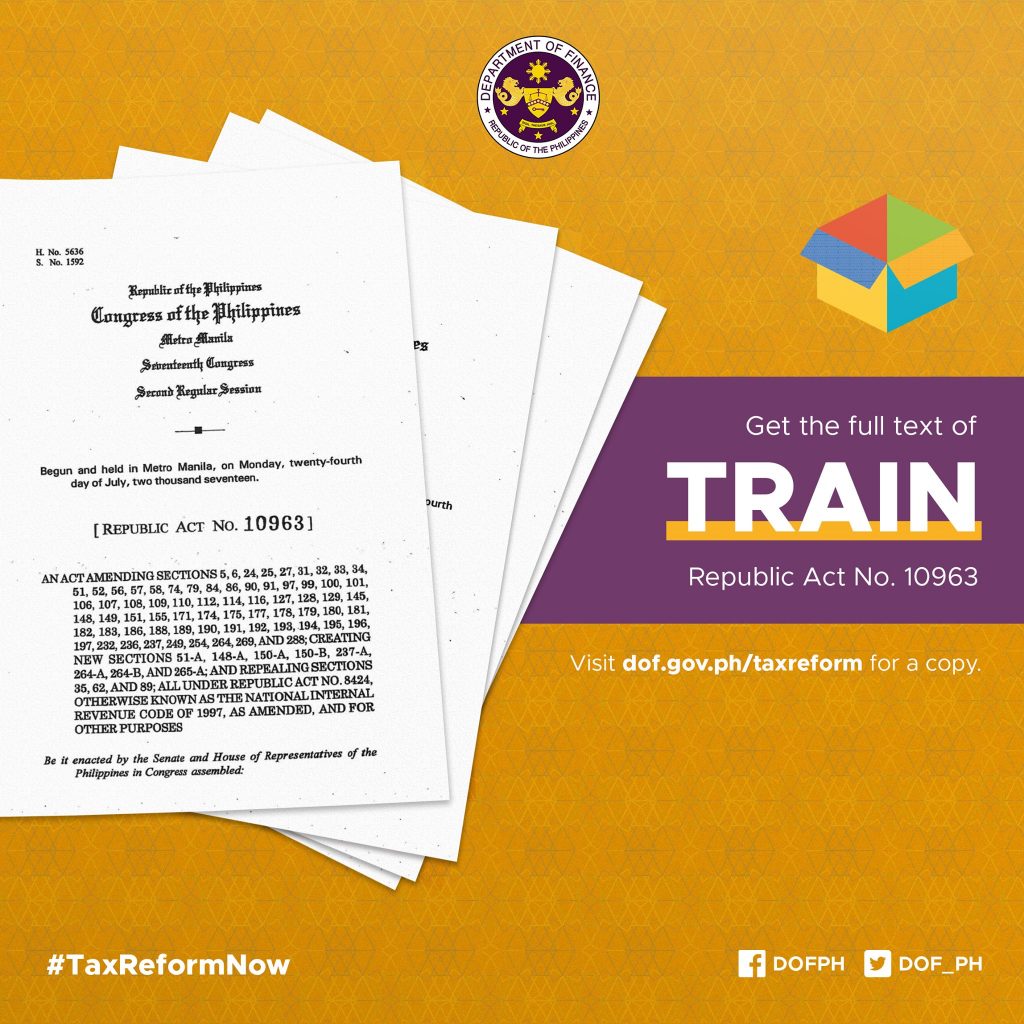- Department Of Finance: High world crude oil prices, tobacco tax compliance, and some profiteering cause high inflation
- The Department of Finance assured the public that the government’s Tax Reform for Acceleration and Inclusion (TRAIN) package was not the cause of the slightly higher inflation, Undersecretary Karl Chua said on Thursday, March 1.
Usec. Chua attributed the rise to the depreciation of the peso against the dollar, higher WORLD crude oil prices, tobacco firms’ compliance with higher taxes on cigarettes, and profiteering activities.
“(A)lthough the inflation of petroleum products is 7.2 percent, none of that was caused by TRAIN because the peso’s depreciation is 1.5 percent and the Dubai crude increased by 19.6 percent,” he said.

Chua also hinted that the real driver of higher inflation aside from profiteering is that the tobacco industry is now paying the right amount of taxes. He cited, for instance, one company who was caught smuggling and producing illicit cigarettes is now paying almost P2-billion more taxes per month.
January inflation posted a rate of 3.95 percent as against 2.7 percent in the same month last year.
“I would like to assure the public that this TRAIN has been well-studied, well-consulted and the inflation very well manageable,” Chua said in a press briefing in Malacañang.
“One month of slightly higher inflation is not a cause for concern because the target is set for the entire year,” he added.
He underscored that the January inflation was still considered “moderate” and well within the 2 to 4 percent target of the Bangko Sentral ng Pilipinas (BSP).
In terms of food, Chua reported that overall food inflation is higher at 4.52 percent. However, he was quick to point out that rice inflation in January remained low at 1.4 percent.
“Sa tingin namin magte-taper off yan. Kasi in January nag-ikot po iyong DTI (Department of Trade) at DOE (Department of Energy), marami pong nahuling mas mataas sa SRP (suggested retail price) so pinagsabihan na sila; binaba na nila iyong presyo,” Chua said.
Chua also noted that inflation outside the National Capital Region (NCR) was lower in the NCR; thus, he said that inflation is not a major concern for the poor and the low-income earners who are mostly residing outside Metro Manila.
Chua further disclosed the other ways the government can do in case inflation goes up. “We have the conditional cash transfer. We have the rice subsidy. We have under the TRAIN, the unconditional cash transfer. And we are pursuing rice tariffication so that rice price will fall by NEDA’s estimate by up to 7 pesos per kilogram,” he said.
A total of 10-million families would benefit from the unconditional cash transfer (UCT) worth P200 per month for poor households affected by the TRAIN law, which would amount to a total of P24-billion worth of government’s subsidy as per Chua’s estimates.
“Well, I think in general, it was quite successful. We give 10-billion peso per month at least to working people in terms of lower taxes and that’s fueling a lot of the positive consumer expectation. The revenue collections in the first two months are on target, and our inflation has remained manageable. And of course, we will continue to monitor and make sure that the fruits of TRAIN are going to be well-spent,” Chua assured.



